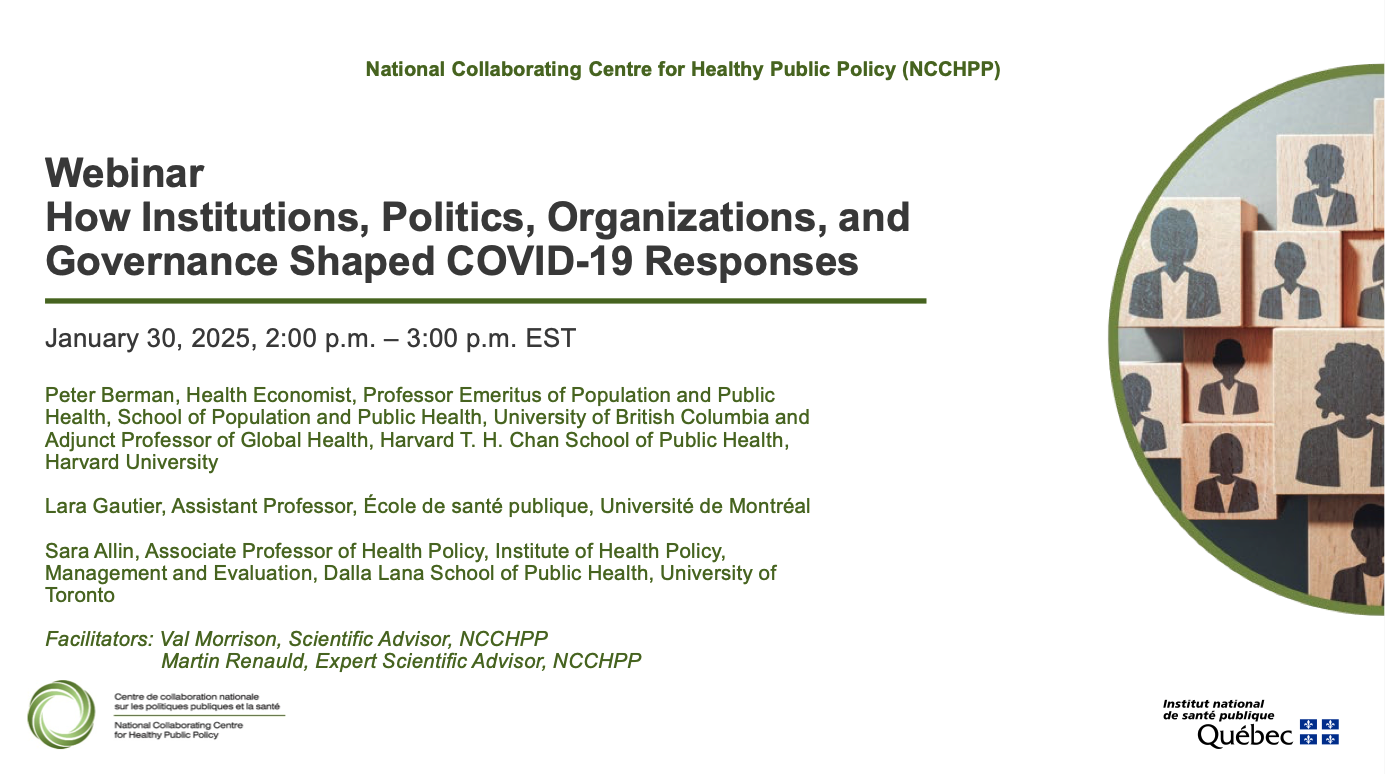[Resource] Webinar - How Institutions, Politics, Organizations, and Governance Shaped COVID-19 Responses

This webinar was intended to share results from the research project, Upstream determinants of effective COVID-19 response: learning from comparisons across Canada’s provinces, funded by CIHR, in which the NCCHPP is a collaborator. While research on global public health responses to COVID-19 has primarily focused on the virus’ epidemiology, transmission interventions, and their outcomes, there remains a significant gap in situating these findings within the institutional, political, and organizational contexts of different jurisdictions.
The Institutions, Politics, Organizations, Governance (IPOG) framework provides a valuable lens for understanding the complex interplay of these factors during the COVID-19 crisis. Crucial elements in the upstream context that played a significant role in influencing policy and decision making during the pandemic, these will remain important in shaping responses to future public health challenges.
The webinar introduced the IPOG framework, outlining the definitions of its components—Institutions, Politics, Organizations, and Governance. We explored how these factors interacted to influence decision making during the COVID-19 crisis, using examples from qualitative data on response decisions in British Columbia, Nova Scotia, Québec, and Ontario. The session concluded with a discussion on the need to better anticipate these interactions in future preparedness planning.
-
By
National Collaborating Centre for Health Public Policy
-
Published
Feb 13, 2025
-
Subject Area
- Education, Recreation, & Arts
- COVID-19
- Non-profit / Charitable Sector Development
-
Audience
- Academics
- Government (Politicians, Policy Makers) and Health Authorities
- Health Authorities
-
Category
- Applications, Annual Reporting, & Data Collection
- Events & Webinars
- Research & Evidence
